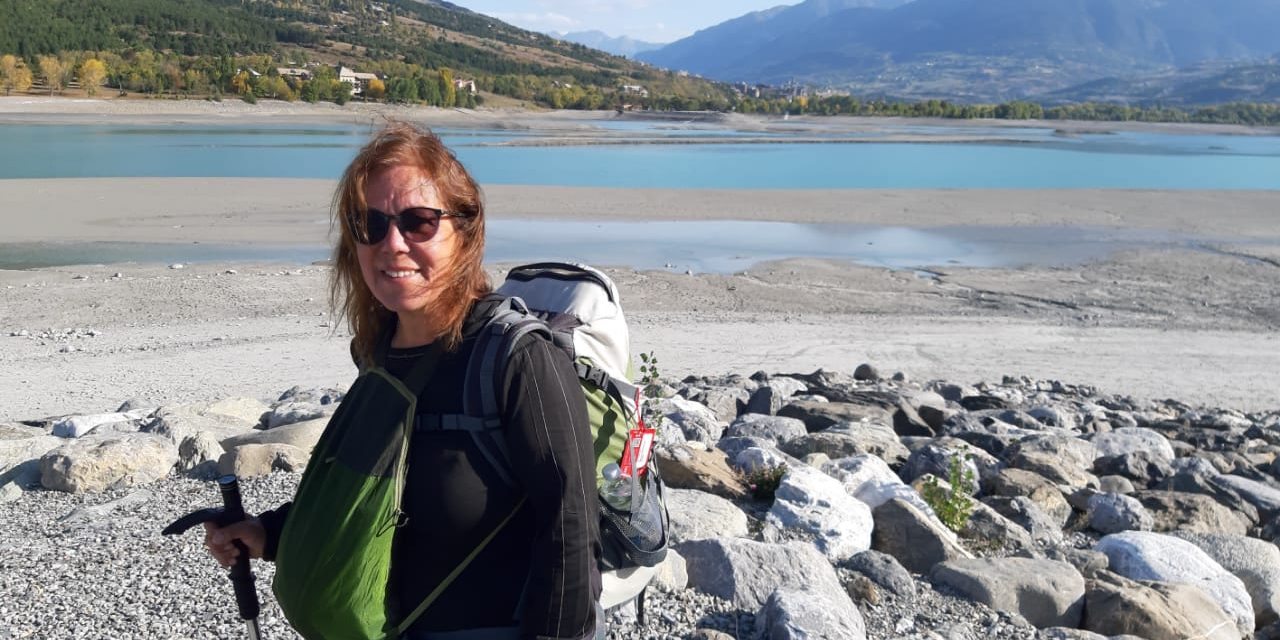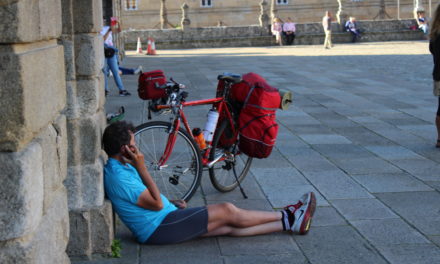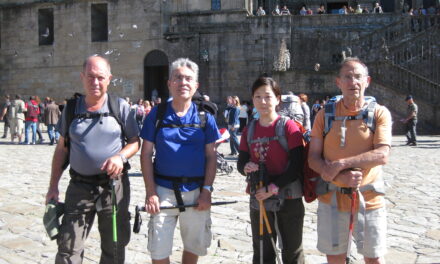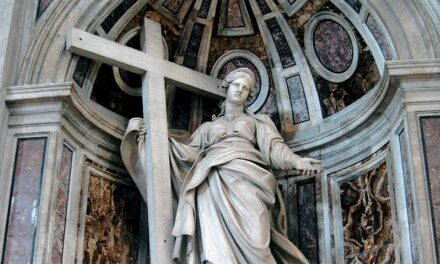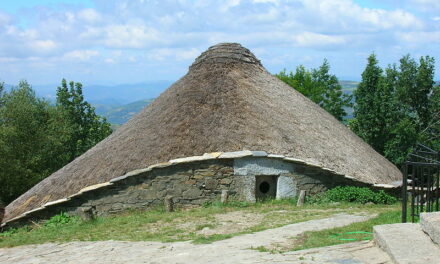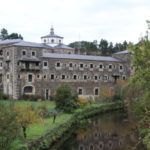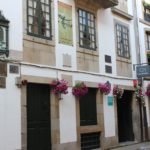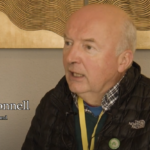Hello Camino! How are you my dear friend? I know from the news that you are alone, that there are no pilgrims walking you, and that you miss us …
We also miss you. We had arranged,Fernando and I, to walk on April 15 the Arles-Lourdes section, from the road Rome to Santiago that we started in September 2019 in Rome, but we have cancelled it …
Imagining this conversation with the road, I find myself living it through memories and photos of so many places I have passed through, so many different routes I have on travelled on the way to the tomb of the Apostle Santiago. Those landscapes, sunrises, sunsets, that colour of the clouds and the sky, those companions on the road, those locals, who, like many of them, have not travelled the way, but are there, watching so many pilgrims pass by, and transmitting their customs, stories and legends.
But well … now it’s time to stay home and that invites us to reflect on the path, that path that has given us so much, so many moments lived, people known in and along the way. It is time to go through memories and photos of so many emblematic places and others that are not but that for each pilgrim who has passed through it will bring back memories, different routes that we have travelled on the way to the tomb of the Apostle in Santiago from Compostela.
And that phrase once heard: “The path, once travelled, begins to run through you and wherever you are, your path is found” today is more prominent than ever.
We read unimaginable headlines a while ago: The Way is closed ”,“ there are no pilgrims on the way ”and I know that this is not so. Physically we cannot go through it, but the path, for those like me who have been lucky enough to know it, it is alive within us.
I would like, when this current situation that we all have to live through has passed and we return to the Camino de Santiago, we find a more spiritual path, where really the words “solidarity”, “welcome”, “daily teaching”, ” companionship ”, have meaning. Letting ourselves “be done” along the way.
Unfortunately, as a pilgrim, and perhaps much more as a hospitalera , I had to see that those words were sometimes not understood and were not lived up to along the way. Some simply went on the road to, for example, “make kilometers” or to live it like a trip of graduate-students.
I believe that God, nature, or whoever each creates, has imposed a STOP on us – at a very high cost – to reflect on how we are living, what each one is doing. This will happen and will leave us profound lessons on how we live and work and why we go on the Camino de Santiago.
And remember that the Camino de Santiago, is not just the days travelled on the road, because perhaps that makes us lose sight of the importance of the road. Along the way we are creating bonds of friendship, meeting other pilgrims. And upon returning to our homes, knowing that the way, it continues to influence us in our daily lives. And also ask ourselves: are we acting like true pilgrims?
I thought these days that one of the experiences of the Camino de Santiago is that on the way we are all pilgrims, we all (or almost all) have the same objective, there are no distinctions, it puts us on a footing of equality and today the “coronavirus” makes us all act the same, all of us protecting ourselves, defending ourselves and taking care of ourselves during this pandemic, and each one at home trying to cope with this quarantine.
I was lucky to be a volunteer in some hostels on the Camino de Santiago, welcoming the pilgrims who arrived at the hostel, with their deep and deep eyes listening to their motivations, their dreams, trying to alleviate their pain, which was not only physical. And I could see that the vast majority were making the journey for very different reasons but, without a doubt, all of them reached my soul when I listened to them. And the reasons that the road also presented to them, such as that Colombian pilgrim, who, a few days after starting his journey, met a French pilgrim who was a deaf mute, and who saw it as a mission to accompany him and be his “companion on the road” , respecting their individuality and their times, in their journey to Santiago de Compostela. And like those many other testimonies.
Today the Camino is in our houses, today we can say that we are the “hospitaleros” of this hostel, we have to take care of hygiene, prepare food, clean the rooms, give that word of encouragement to those who share the house with us, but also -and luckily technology helps us- to be listeners and companions via social networks and WhatsApp with other pilgrims that we know, carrying to them our word of encouragement. Some pilgrims / priests and friends share the masses and sermons via the web, because at this time that we are prevented from attending religious services.
Without a doubt, all this will pass, and I trust that we will soon begin to glimpse on the horizon the cure for this pandemic. And once again this situation reminds me of the camino, in that journey when in the distance we see our goal for the day. The camino has suffered other very hard pandemics – the black plague to cite an example – much harder than this, and little by little it grew again. It is true that, in recent years, it has grown to mammoth proportions, which did not allow us to “live” and “feel” the way as many pilgrims would have liked.
For this reason, today more than ever it only remains for me to say goodbye with that greeting of faith, of faith and of strength among the medieval pilgrims, and which appears in the chant of the Codex Calixtino: Ultreia et Suseia. Deus adjuva us!!
I encourage pilgrims! Buen Camino!
Rosana Montano
President of the Association of Friends of the Way of St. James in Argentina

